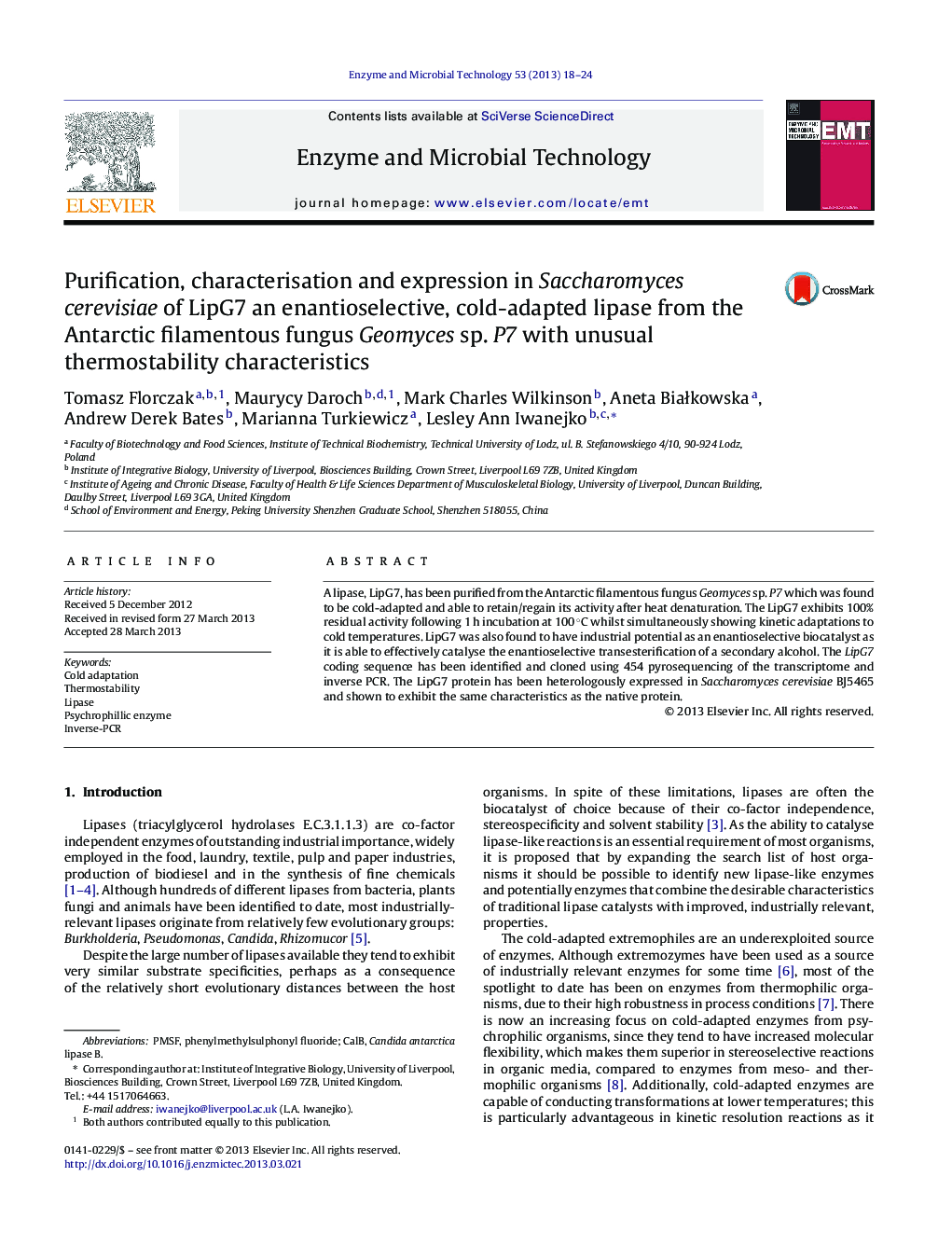| Article ID | Journal | Published Year | Pages | File Type |
|---|---|---|---|---|
| 17175 | Enzyme and Microbial Technology | 2013 | 7 Pages |
•LipG7, an enantioselective, cold-adapted lipase was purified.•LipG7 retains 100% of initial activity after thermal denaturation.•LipG7 effectively catalysed the enantioselective transesterification of a secondary alcohol.•Low coverage, high throughput transcriptome sequencing identified the LipG7 gene.•Heterologously expressed LipG7 retains its thermostability characteristics.
A lipase, LipG7, has been purified from the Antarctic filamentous fungus Geomyces sp. P7 which was found to be cold-adapted and able to retain/regain its activity after heat denaturation. The LipG7 exhibits 100% residual activity following 1 h incubation at 100 °C whilst simultaneously showing kinetic adaptations to cold temperatures. LipG7 was also found to have industrial potential as an enantioselective biocatalyst as it is able to effectively catalyse the enantioselective transesterification of a secondary alcohol. The LipG7 coding sequence has been identified and cloned using 454 pyrosequencing of the transcriptome and inverse PCR. The LipG7 protein has been heterologously expressed in Saccharomyces cerevisiae BJ5465 and shown to exhibit the same characteristics as the native protein.
